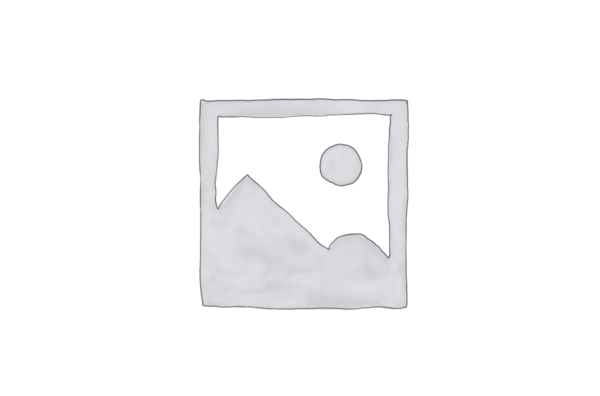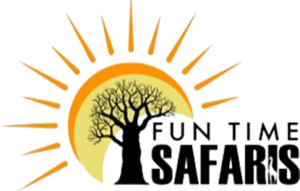Fun Time Safaris Travel Information & Travel Guide
This is simply everything you need to know as you tour our beloved country Zambia.
OFFICIAL LANGUAGE
English
Bemba
Nyanja
CLIMATE
The Temperature is a semi-tropical climate with three main seasons which include;
- Warm days and cool nights from April to July. Winter
- Hot and dry from August to October. Summer
- Warm and wet from November to March with typical African thunderstorms. Rain season
BEST TIME OF YEAR
This depends on what you really want to do. In a brief summary:
- June to October is the best time for walking and photographic safaris. (August to October is the peak season with much of the water in the game parks dried up and game concentrated near the remaining water holes and rivers.)
- November to April is the best time for birders with the arrival of migrant species. A number of the camps in the National Parks close at the end of November and re-open in April.
- February to May: The Victoria Falls is at its highest and most spectacular, absolutely thundering over the edge, but prepare to be drenched.
- April to mid-June: Livingstone Island on the edge of Victoria Falls is closed, river levels dependent. Some river-based adrenaline activities may also be closed.
THINGS YOU NEED TO KNOW WHEN DRIVING IN ZAMBIA
- Side of the road: We drive on the left-hand side of the road in Zambia and observe standard British driving rules. There are some very picturesque roads, but it is important to be aware of certain issues to ensure your comfort and safety.
- Road conditions: Zambia generally has good paved or tarred roads connecting the major towns and cities. The park roads are mostly motorable gravel roads. Some road conditions could be bad and you should take due care when driving on unsurfaced roads and where bad tarred road conditions exist. Potholes can appear suddenly in the middle of a perfect tarred road without warning always be prepared.
- Obstructions: Villages are often located along the edge of roads which results in dogs, goats, children, oxen carts, drunks, chickens, cattle and cyclists using the road. Be cautious and alert when driving as children may suddenly step out of the tall grass by the side of the road directly into your path.
- Other vehicles: We strongly advise against driving after dark in Zambia. It is difficult to see pedestrians, animals, broken down vehicles may not have warning triangles and some vehicles travel at night without lights. Few roads also have reflective markings to note the lanes. This makes it difficult to drive at night.
- Speed limits: Within towns and settlements the speed limit is generally 40 or 60 Km/h and 80-100Km/h on open roads, but be very conscious of speed signs. Enforcement of speed limits is strict, Zambian Police often have speed traps immediately after speed limit signs.
- Police Road Blocks: These are very common in Zambia and generally do not provide much in the way of trouble. However, it is important to be aware that an orange traffic cone or a 44-gallon drum in the Centre of the road may indicate the presence of a police road block. There may not always be adequate warning of police road blocks. You should be aware of this and slow down so that you can stop if necessary. Below are questions that might be asked by the Police.
- Passport If you are requested for this, the chances are that the roadblock is in fact an immigration department roadblock. For this reason, if you are a visitor to the country, it is advisable to carry your passport.
- Driving License This is your normal driving license. Under Zambian Law, you are permitted to drive for three months on your foreign Driving License. Your driver’s license must be in your possession at all times when driving in Zambia
- Fuel: In remote areas of Zambia petrol is not commonly used and at times there are shortages of all fuel types. If you intend to travel into these areas, we advise that you take extra fuel with you in case
FUN TIME SAFARIS – GUIDE TO SAFARI SAFETY IN ZAMBIA
Are Zambian Safaris Safe?
Yes. Zambian safaris are safe.
The vast majority of people who go on safari in Africa have a perfectly safe trip. How safe your Zambian safari is, largely comes down to the risks you take and whether you choose to follow sound advice.
WILDLIFE SAFARIS SAFETY
Going on safari in Zambia is exciting, inspiring, beautiful and wild but it is not always safe. If you are exploring the National Game Parks in Zambia or just any park that has wild animals in them, it is important to know the facts surrounding your safety in the environment you are in.
If you decide to create memories by touring the beautiful Zambia and want to experience the safaris game viewing, Game drive and walking safari. Here are some fun time safaris safety tips and precautions that will help you prepare for your trip to Zambia and give you a brief overview of what to expect, how to prepare and how to behave if you had an encounter with a wildlife animal during your safari experience. Please take these tips and precautions seriously.
FUN TIME SAFARIS SAFETY FOR GAME VIEWING
When watching African wildlife animals in their natural habitat, looking all serene and lovely, people or tourists tend to forget that these animals are wild. While many of them have become used to the presence of safari vehicles, they are not used to humans and still see us potential threats. When you rent one of our cars and go on a safari trip, always remember that wildlife can roam freely near national parks. You need to follow a few simple rules of the bush that will keep you and the animals you encounter to ensure you have a fantastic experience while you on your safari trip.
The best way to ensure your safety in the African bush is to take guided safaris. If you decide to do a self-drive trip to the safari in Zambia, consider hiring a guide for the parts where you visit national parks and game reserves. Having a guide is important and it keeps you safe on safari and also make you get the best experience out of your game viewing adventure. A good safari guide is an expert in finding wildlife and has wealth knowledge to share about the animals and Zambia as a country itself.
FUN TIME SAFARIS SAFETY ON GAME DRIVE
When you rent one of our cars and go on a safari game drive, always remember that wildlife can roam freely near national parks. If you come across an animal in the game park, do not approach the animal. Elephants in particular can move very fast and can be very dangerous. They are scared of humans and can react suddenly without much warning. Ideally, the will flap their ears to show annoyance or do a mock charge. This should be sufficient warning that it perceives you as a threat and you may need to give it some space.
Nile crocodiles occur in the rivers and lakes in Zambia. We advise you do not to swim in any local waterways. Here are some rules to help you safe on safari during game drives out in the bush.
- Get a pair of hiking binoculars to observe wildlife from a safe distance.
- While animals are accustomed to the sound of safari vehicles, human noise will disturb them and make them run away or agitated. If you need to communicate at all, do so in a whisper.
- In most game reserves, animals have become habituated to the vehicles used and their shape. Do not stand up or wave your arms around the safari vehicle as this could frighten the animals and may result in them retreating or attacking.
- Watch out for low hanging branches or those that are close to the side of the vehicle. Trees in Africa tend to be thorny so you always have to watch out.
- Never try to interfere in any way with the animal you encounter. This includes trying to change their behavior or position for a good photoshoot an feeding them.
- The feeding of wild animals is absolutely prohibited for both your and the animal’s safety.
- No smoking in the safari vehicle. It is a fire hazard in dry African bush and may affect the animals.
- Drink only water and preferably don’t eat while on a game drive unless your guide has stopped for a picnic break during your game drive.
- Most wildlife naturally wants to avoid humans so if you come across wildlife, remain calm.
- Always walk, don’t run. Running away from wildlife screams “prey.” You could also trip and injure yourself if you take off running in a panic.
- Before heading out, educate yourself on the types of wildlife that may be present in the region so you know what to be aware of.
- Avoid wearing strong perfume when going on a safari as this may irritate some Elephants and other wildlife. They may end up attacking you.
FUN TIME SAFARIS SAFETY ON A WALKING SAFARI
- When you are tired of the game drive and need to take a walk in the wild. Never go on a walking safari without a guide. The guide is trained and knows the do’s and don’ts of the bush. Obey any instructions they give at all times.
- Avoid bright colors. Green and browns are the best colors to wear so that you remain camouflaged.
- When walking in the bush, walk in single file, an arm’s length away from each other.
- Never run when you encounter a wild animal, an animal that sees a creature running will presume that you are prey, or dangerous and may try to attack you.
- Never underestimate the speed which wild animals can run at. While hippos and crocs look sedately lazy, they can attack at a high speed.
- No smoking in the safari vehicle. It is a fire hazard in dry African bush and may affect the animals.
- Drink only water and preferably don’t eat while on a game drive unless your guide has stopped for a picnic break during your game drive.
FUN TIME SAFARIS TRAVEL SAFETY IN ZAMBIA
Zambia is a peaceful nation and is not like other countries infamous for high crime levels. Even with this it is not always that crime does not occur. Following a few simple rules will ensure your trip is happy and incident free.
- On arrival, do not allow taxi drivers/guides/tour sellers to harass you as you leave the airport building. Keep your luggage close to you and wait for a registered taxi to approach you.
- Keep valuables hidden always. Avoid flushing expensive jewelry, cash or cameras.
- If there is a safe in your room where you are staying, leave valuables such as passports and extra cash safely locked up there. If you have to carry them on you, carry them in a pouch close to your skin under your clothes.
- Do not walk in unsafe areas at night and never alone. Speak to the staff at your hotel/guesthouse/B&B about which areas are unsafe. If you are unsure, don’t take the risk. Taxis, Ulendo, Yango are available transport services you can use to quickly reach your destination
- Always look like you know where you are going. Lost tourist tend to be a target for petty criminals. If you are lost, go by the nearest shop to ask for directions. Zambia is filled with happy friendly people who are more than willing to point you in the right direction.
- When in a car, always lock all doors and keep valuables out of sight or lock in the boot.
- Do not accept help from anybody when making withdrawals at an ATM or when doing anything to do with foreign exchange or money.
- When paying by credit card, do not let your card, do not let your card out of sight. Credit card fraud is becoming a more concerning issue globally.
PAYMENT FOR SERVICES IN ZAMBIA
- The currency in Zambia is the Kwacha. The largest note are K100, K50 then K20 and K10 We also have coins in circulation including (K1 50ngwee 20Ngwee and 10Ngwee coins).
- Credit cards are becoming more widely accepted in Zambia, however not in remote areas and should not be relied on except in major towns. A commission varying from between 5 to 7% is generally charged on both credit cards and travelers’ cheques at lodges/hotels in order to cover the bank charge commission. Most hotels and lodges accept Visa and MasterCard, Union Pay, American Express and Diners are accepted in only a few establishments.
- Zambia is a free market economy and foreign exchange can be readily converted. It’s best to come into the country with either US dollars or pound sterling cash (or travelers cheques), which can be exchanged at any of the banks or Bureau de Change in the main towns. Travelers cheques attract a commission when changing to other currencies.
- Changing Money: USD (United States Dollars) are easier to change than Pounds sterling and Euro. It is essential that your USD notes are fairly recently printed with “large heads”. Old notes with “smaller heads” (except One Dollar Bills) are not accepted ANYWHERE in Zambia. Some banks will also charge a different rate for small denominations. We recommend that you do have some smaller denominations of USD bills for tips and so on
- In larger town Centre’s, USD bills may be accepted for payment instead of Kwacha if you run out of Kwacha. Having said that, fuel stations will not generally accept USD.
- ATM: The major towns and even some smaller Centre’s across the country have ATM machines now which will allow you to withdraw cash in the local Kwacha currency. Visa is the most widely accepted card at these machines.
- Banks: There are banks in most Centre’s across the country. The opening hours are 08:30 to about 14:30 or 15:30 hrs Monday to Friday. It can be difficult to find a bank open on a Saturday. However, there are many bureaus de changes and these will be open on Saturdays and week day afternoons.
- Theft: Talking of money, there is much poverty in Zambia and displaying your money openly is not advisable or fair to the local people. Please be sensible about securing your valuables. Do not leave them lying around where you will just tempt fate.
HEALTH AND INSURANCE
- Insurance: Clients are advised to have comprehensive travel insurance including: medical evacuation; hospitalization & repatriation; baggage loss and loss of funds through cancellation or curtailment of package booked.
- Malaria: Zambia is a high-risk malaria area. All visitors must take appropriate prophylactics to prevent them from contracting the disease, which is transmitted by infected mosquitoes. Consult your medical practitioner. It is important to adhere strictly to the dosages, especially for the four to six weeks after their stay in Africa. Guests are further advised to use mosquito repellent and wear long clothing in the evenings and sleep under a mosquito net at night to prevent being bitten by mosquitoes.
- If you come down with flu-like symptoms either during, or within four to six weeks after your visit to a malaria area, seek a doctor’s advice immediately.
- Inoculations: A yellow fever certificate is mandatory if you are travelling from an infected area. Vaccinations for cholera, tetanus and yellow fever are advised. Consult your medical practitioner.
- A small personal medical kit will give you extra comfort if you do become ill whilst on holiday. However please be aware that any medication MUST be accompanied with a doctor’s prescription. The Zambian government strictly enforce the law when it comes to drugs of any sort.
- Carrying Medicines: A small personal medical kit will give you extra comfort if you do become ill whilst on holiday. However please be aware that any medication MUST be accompanied with a doctor’s prescription. The Zambian government strictly enforce the law when it comes to drugs of any sort. Many drugs that you can buy across the counter in other countries, such as strong painkillers etc are classified as prohibited in Zambia. If in doubt, get an official prescription and make sure your medication is in a sealed container.
TRAVEL DOCUMENTATION
- Please consult your travel agent for the latest visa requirements applicable. The responsibility to obtain correct, current and valid passports, visas, vaccinations, inoculations and re-entry permits where required, is that of the renter alone. There is a small and variable local departure tax. International departure tax is presently US$40.00 Local travel departure tax US$16.00
ADDITIONAL POINTS TO NOTE:
- The possession of pornographic material is illegal within Zambia. The use of rude words and derogatory terms could be easily misconstrued and is considered highly offensive. Please be considerate to avoid causing undue offense.
We wish you a pleasant safaris trip and hope you will enjoy your stay or your adventure in Zambia.



